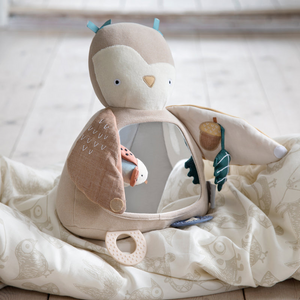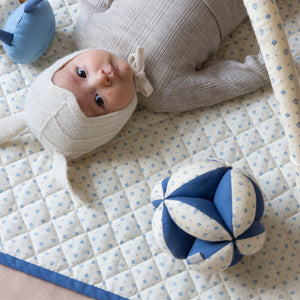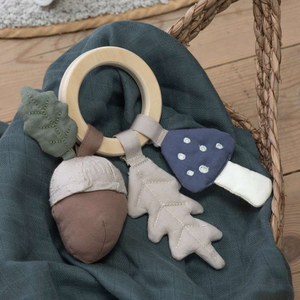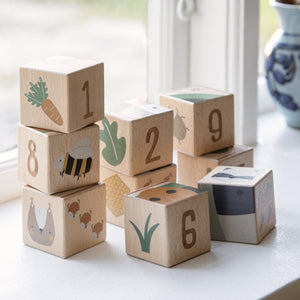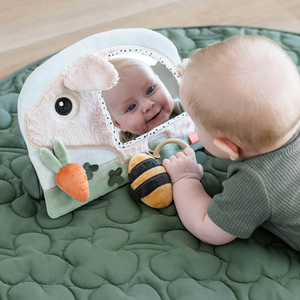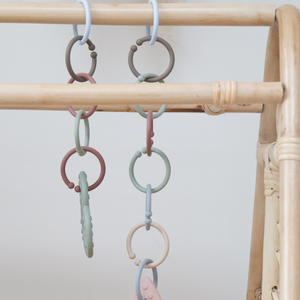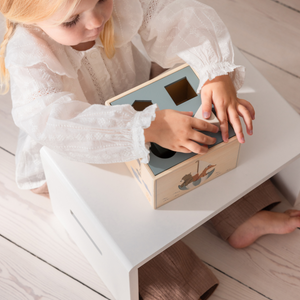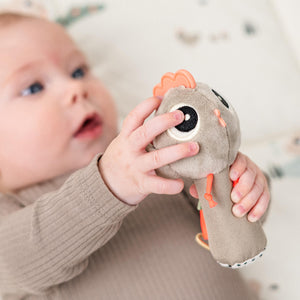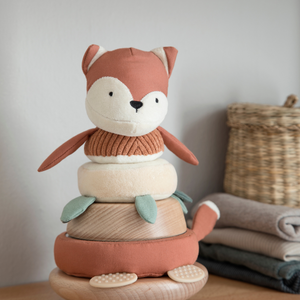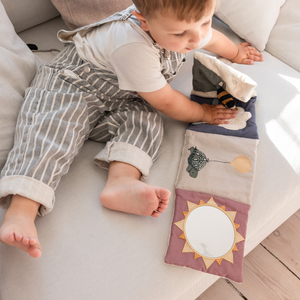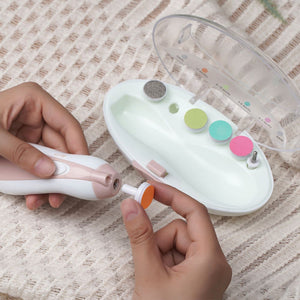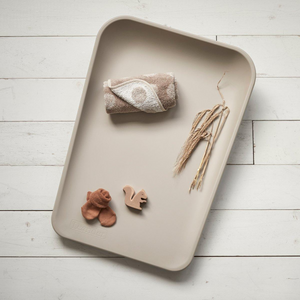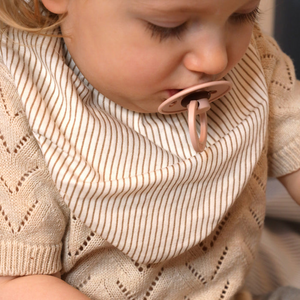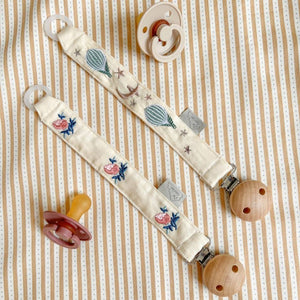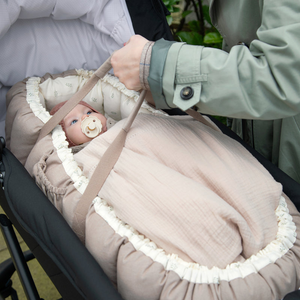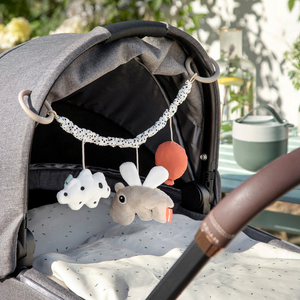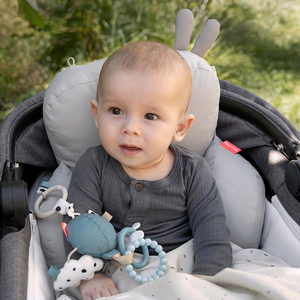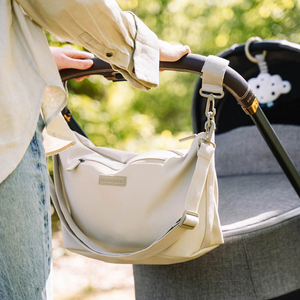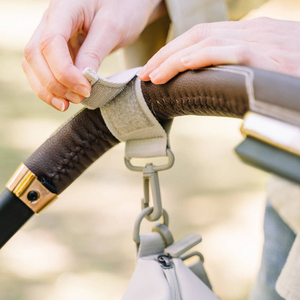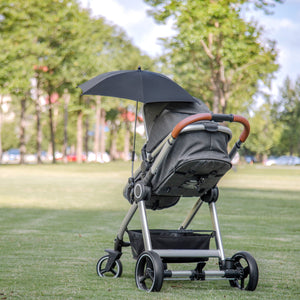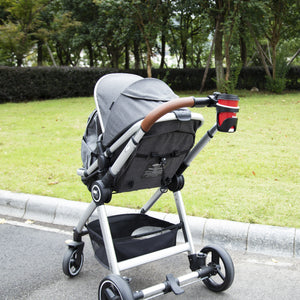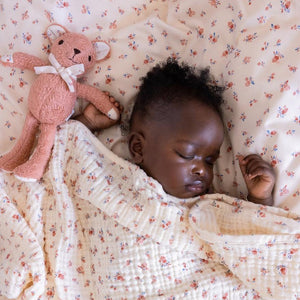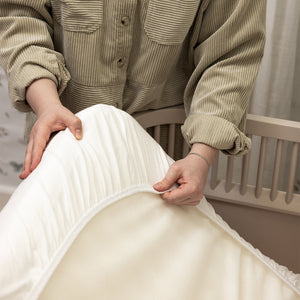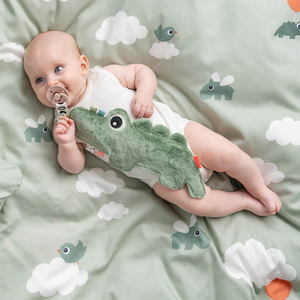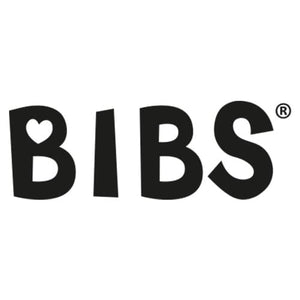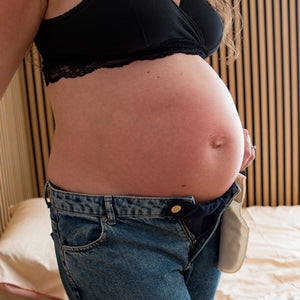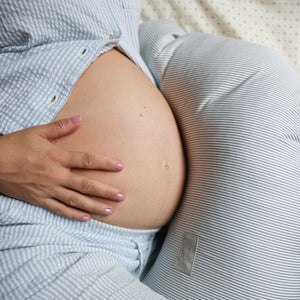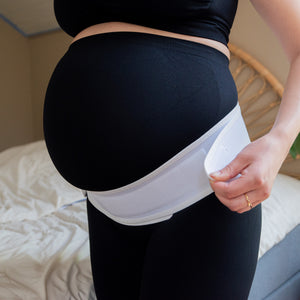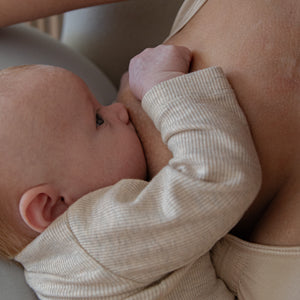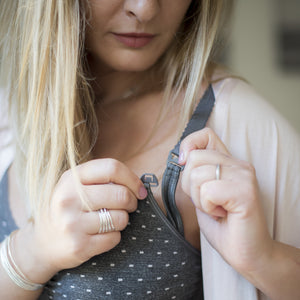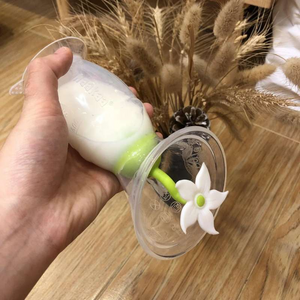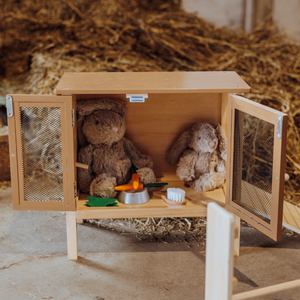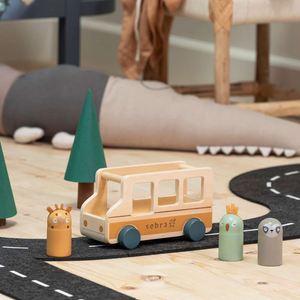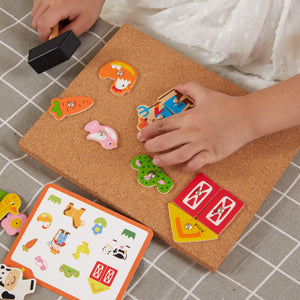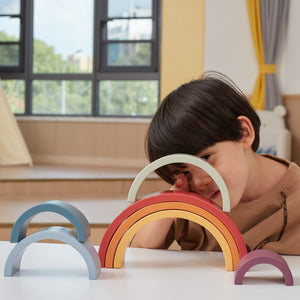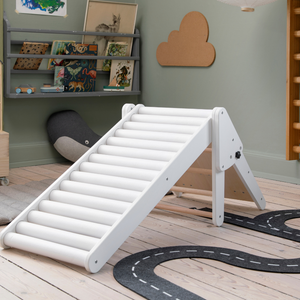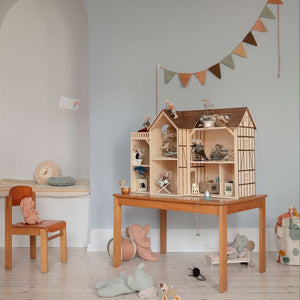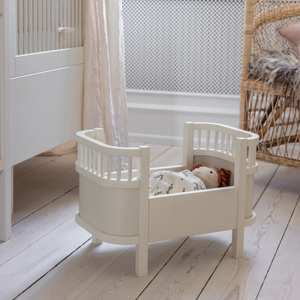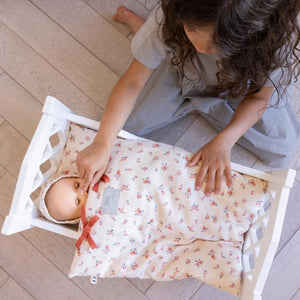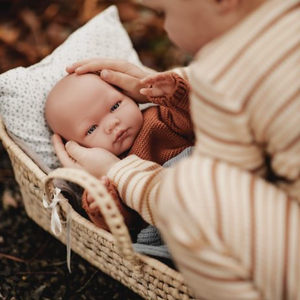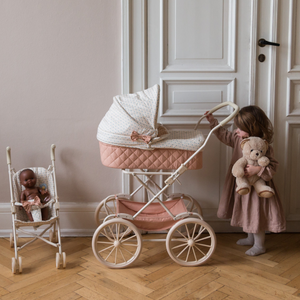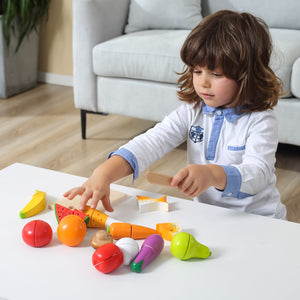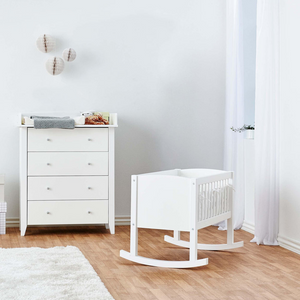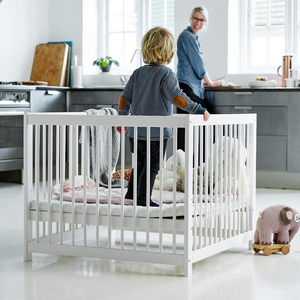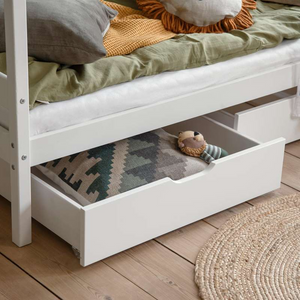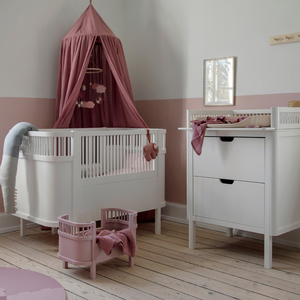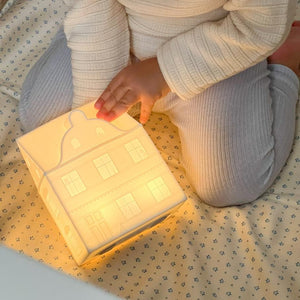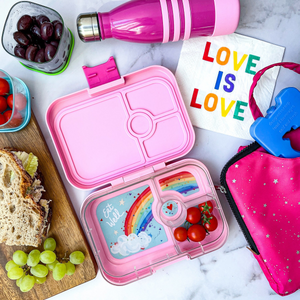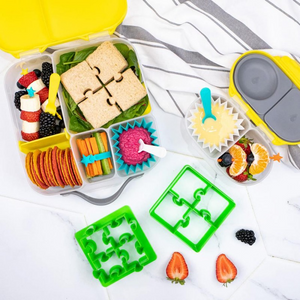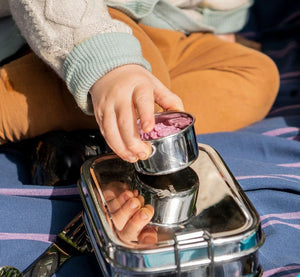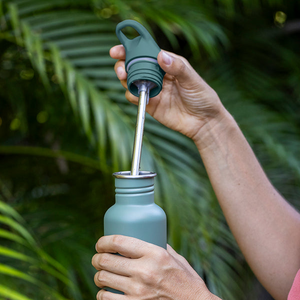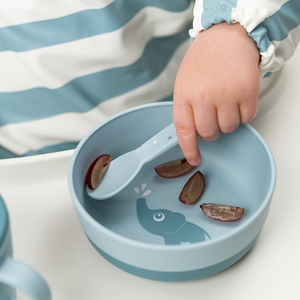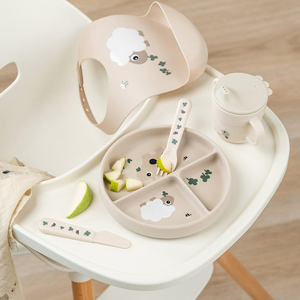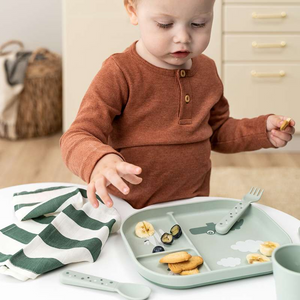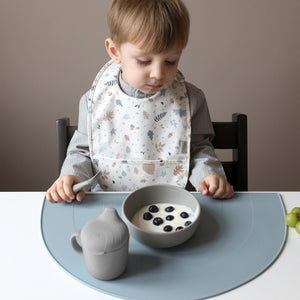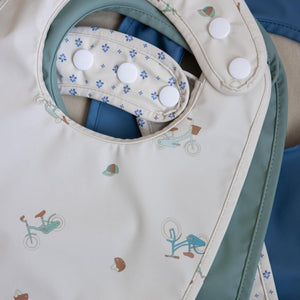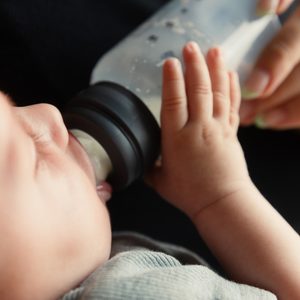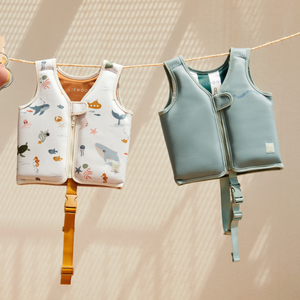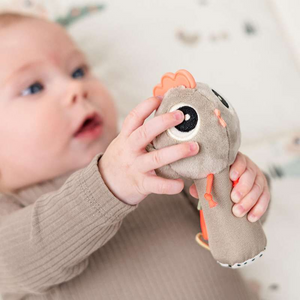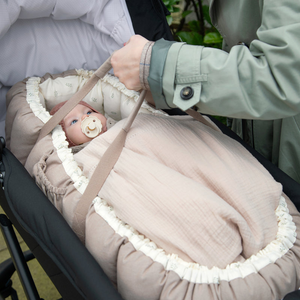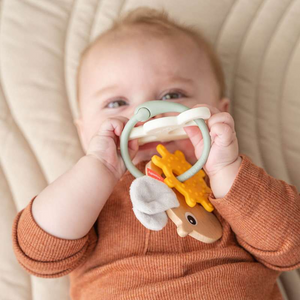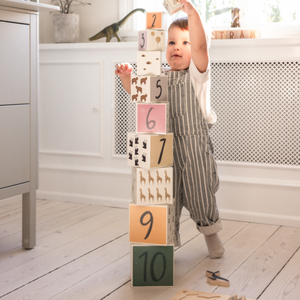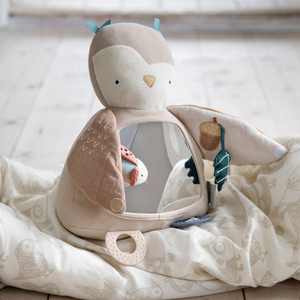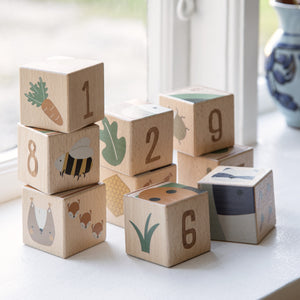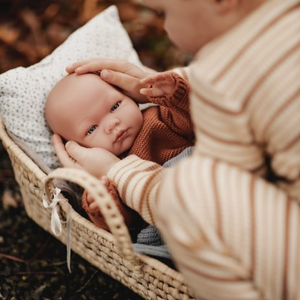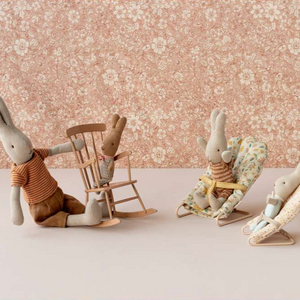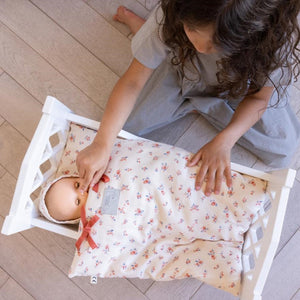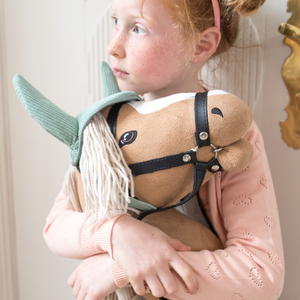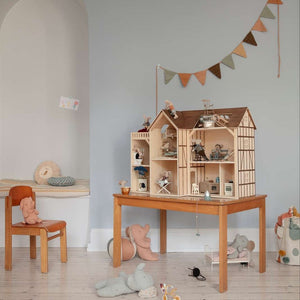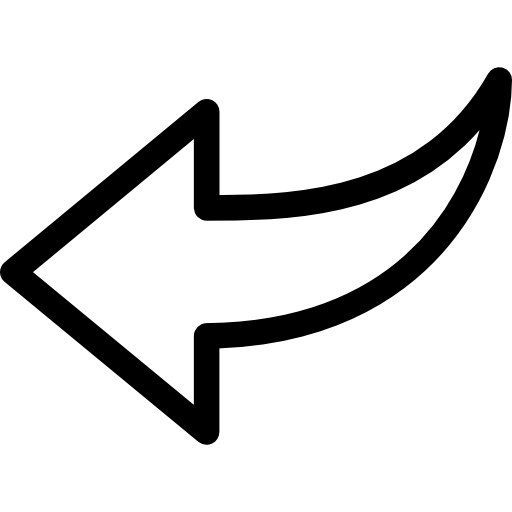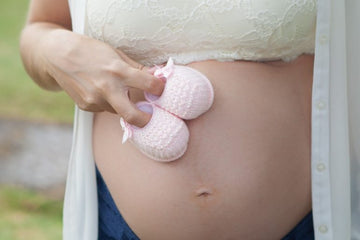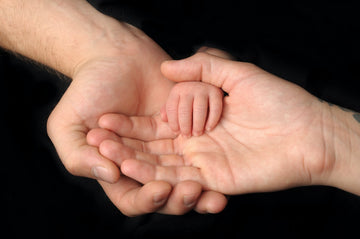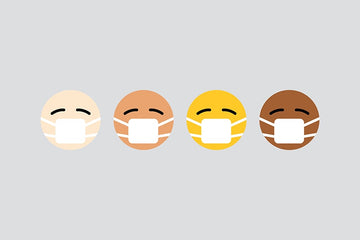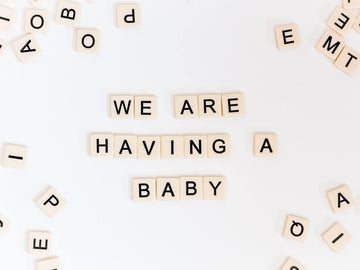With this pregnancy calendar - week by week, you get an insight into your pregnancy and what happens inside your belly during pregnancy.
Jump directly to the individual weeks:
If you want to read all the weeks (week by week), just scroll further. Below you will find all the weeks. We have just made this list so you can easily jump to the week you are interested in. Happy reading!
Week 1 and 2: Counting before you are pregnant
Week 1: When we talk about a pregnancy lasting 40 weeks, we are actually discussing the development of the egg, even before it is fertilized. Thus, the first week of pregnancy begins before you are actually pregnant.
When your last menstruation ends, the maturation of a new egg begins, and it is from this day that we count when stating how far along a woman is in her pregnancy.
Fertilization occurs only around ovulation in the middle of your cycle, so in week 1, you cannot feel anything different than at the start of any other cycle. It might just be excitement and anticipation if you are trying to get pregnant.
A little tip: If you are trying to get pregnant, it is already a good idea to start taking a folic acid supplement and generally eat healthily. Both of these increase the chance of successful fertilization.
Week 2: The egg is getting ready to be fertilized. However, it is still safely in the ovary, from where it will soon begin its journey into the fallopian tube. Meanwhile, your uterus is preparing to receive a fertilized egg.
All of this happens routinely as part of your cycle, and that is precisely why it has been chosen to start 'counting weeks for pregnancy' 2 weeks before you are actually pregnant. Your cycle represents a fairly precise starting point for estimating when the birth will take place. The exact moment of conception, however, can be very difficult to determine precisely.
Week 3: Maybe you are pregnant
If fertilization took place at the end of week 2, you are now pregnant. Once the egg has been fertilized in the fallopian tube, it begins its journey to the uterus. Some may experience a little spotting when the egg finds its place, typically at the end of the week.
A fertilized egg is far from a guarantee of a successful pregnancy. At this early stage, everything is still very fragile, and it is not recommended to test for pregnancy before your next menstruation is due. The test is too inaccurate before then, and the pregnancy is too uncertain.
Week 4: Suspicion or positive test.
You may not know for sure yet, but the suspicion that you are pregnant is there. Your menstruation has been missed, and you may feel a little more tired. This is all completely normal; a test may also be able to confirm it definitively, you are pregnant in week 4.
If you have a positive test, you should contact your doctor so that an appointment can be arranged for a pregnancy examination between week 6 and week 10 – It is most optimal to wait until after week 8 because then blood tests can be taken at the same time.
Week 5: A small heart begins to beat
Even though you may not have known about the pregnancy yet, a lot of amazing things are already happening – perhaps also a little that you would rather be without. There is daily development going on, and this is partly what can trigger some nausea and fatigue. This is completely normal, and some feel it more than others.
Even though it cannot be seen on you, it is around week 5 and week 6 that it is possible during an internal scan to see a tiny heartbeat, and in just a few weeks, it will also be possible to hear it on a scan.
Week 6: Halfway through the 1st trimester
You are now halfway through the first trimester. Your body is working to 'build' a little human. Your heart is beating faster than usual because your body is working so hard, but otherwise, you probably don't feel much different than last week: tired, nauseous, and maybe just not quite comfortable. The nausea may even have increased a bit.
You may have the feeling that your pants have already started to tighten, although it's not something others can see. But the need for looser and more comfortable clothes is beginning to set in - perhaps in the hope of minimizing discomfort. If you are pregnant for the second time (or more), the baby bump may also be bulging a bit more than the first time.
Week 7: Your baby is the size of a grain of rice
Your baby is now the size of a grain of rice. Although there is not much space to work with, the organs are developing more and more. Arms and legs continue their development, while fingers and toes are still waiting to form. The precursor to the brain is also being formed now.
In week 7, the external signs of your pregnancy do not differ significantly from week 6. Although your uterus has expanded quite a bit, your pregnancy is still completely invisible at this time. It is even common to lose a little weight.
You probably still have nausea and cravings for certain foods. Additionally, at this point, you may discover that morning sickness is not a very precise name. The nausea can last all day or only occur in the evening. It varies greatly from person to person, and apart from being very uncomfortable, there is no reason to worry about it.
Week 8: Your first pregnancy check-up
If you haven't been to the doctor for your first pregnancy check-up, it's a good idea to go this week. The doctor measures your blood pressure and weight and creates a medical record that will follow you for the rest of your pregnancy. Many women experience that they get blemished skin and pimples during this period. It is the changes in your hormones that make your skin oilier, but don't worry, it will pass again – for most within a few weeks.
If you had a scan at this time, you would be able to see the little heart beating. For most, however, there is about a month's wait for the first scan. In this month, the fetus begins to develop toes and fingers, and the first teeth also begin to develop behind the gums. Most internal organs are gradually fully developed, and your fetus looks more and more like a little human, even though it is still only 1.6 centimeters long and the size of a small bean.
Week 9: Boy or girl?
It is this week that your baby begins to develop into a boy or a girl. However, you can only find out what gender your child has during the first scan, which usually takes place around week 12. And it may be that you don't want to know the gender until birth.
Your baby now weighs about a gram, and he or she is the size of a grape. Bones and cartilage are beginning to form, and the eyes are nearing completion. The organs that have developed in the umbilical cord are moving into the abdominal cavity as the fetus's body grows and makes space for them.
And your baby is not the only one experiencing growing pains. Your breasts have probably never been bigger, and it might be a good idea to buy a new bra with plenty of support. It may be that your pants start to fit more poorly as your belly grows. For many, pregnancy will begin to be visible now if you look closely.
Some women experience an increased sex drive due to the many extra hormones in the body. It is perfectly fine to have sex, and it neither harms the baby nor the pregnancy. Others feel so nauseous that they can't bear the thought of sex at all. Both are normal.
Week 10: Your baby is 3 cm long and full of life
Your baby begins to move in the womb this week. However, you cannot feel it yet, as he or she is still only about 3 centimeters long and not much bigger than an olive. Despite this, most joints and all organs have already formed, which means that the risk of serious malformations decreases from here on out.
Are you remembering to get enough iron? Your blood volume increases by 40 to 60 percent during pregnancy, and it requires extra iron.
Pregnancy is slowly becoming more visible, and it is likely that you have gained a little weight by this point. Remember, your fetus only weighs about 3 grams, so that is not what is weighing you down. The pregnancy itself weighs a bit, just as the increased blood volume weighs a bit. Additionally, your cravings may have added a little extra fat to your sides.
Week 11: Your baby is growing quickly
The most important parts of your fetus's development are over, and now it is really starting to grow bigger. During this week, the fetus will grow between two and three centimeters - a doubling of its size, so it ends up being about the size of a lime.
The eyes are still not fully developed, but they are well on their way. The head is large compared to the rest of the little body, but as the pregnancy progresses, the difference will gradually even out, and when you give birth, the size of the head will correspond to a quarter of the entire baby.
Morning sickness is probably not as bad anymore, if you even feel anything at all. Your uterus is about the size of a grapefruit, and you may start to feel that your pants are tightening around your belly.
If you think the first couple of months of your pregnancy have been tough, then look forward to it. After next week, you will be out of the first trimester, and for many, the second trimester is much easier and characterized by fewer ailments.
Week 12: Your first scan
Are you ready for your first scan? It is in this week or next that the nuchal translucency scan is usually performed. With the help of an ultrasound scan, the baby's nuchal fold can be measured, which can help assess the likelihood that the baby is born with Down syndrome (mongolism).
If there is any likelihood of this, you will be offered an amniocentesis, and if the syndrome is confirmed, you will be offered to terminate the pregnancy.
At this point, the fetus is about the size of a plum and is almost fully developed. Everything continues to grow and develop until birth, but the basic structures are in place. The placenta begins to function and provide nourishment for the rapid growth that the fetus will go through.
The uterus moves further upwards to make room for the upcoming growth. Therefore, it doesn't press as much on your bladder for the next while. Enjoy that you don't have to go to the toilet so often – that will change again towards the end of the pregnancy. Morning sickness is probably not as bad now, but you have formed a lot of new blood, which can give you headaches. Talk to your doctor about it if you think it's severe.
Week 13: Your belly is growing
You made it! You are now through the first trimester. For many pregnant women, the second trimester is much easier. Your body has gone through the most important preparation processes and just needs to provide support and space for your fetus as it continues its explosive growth.
Your pregnancy will become very visible over the next three months, but your belly won't get so big that it becomes very bothersome.
Your baby's development continues at a rapid pace, and the upcoming milk teeth begin their development. The liver and pancreas begin to function, and the baby's face will start to look more human as the eyes and ears find their places.
Even though your baby is working hard, this time can be lovely for the mother (and father). However, as the uterus expands, you may experience some tenderness in the abdomen and lower abdomen.
Week 14: You gain renewed energy
Many experience relief as nausea and fatigue subside, allowing them to start eating normally again and not needing to sleep all the time. This brings renewed energy to everyday life, and you will truly begin to enjoy your pregnancy.
Your hormones are no longer quite so unpredictable, and the same can probably be said about your mood. However, the hormones may have had the unfortunate effect of slowing down your intestines, which can lead to constipation. Ask your doctor if constipation becomes an issue.
The baby begins to practice breathing movements, the eyes and ears continue their development, and the fetus's neck becomes longer so that the chin does not rest directly on the chest. The small hands are nearing completion, and the fetus begins to move them. The placenta is now responsible for all nutrition to the little one.
If you notice a dark line that goes from your navel downwards, it is completely normal. It even has a Latin name: Linea nigra, which means "dark line." It is hormonally induced and has no significance. The dark line usually fades after childbirth.
Week 15: Your baby is now the size of a lemon
Your baby is now about 9 cm long and the size of a lemon. Not much new happens this week. Your baby is probably inside the uterus sucking on its thumb. The sucking reflex is strong very early on, and that's good because it's what will keep the baby alive when it is born. The bones are also getting harder, but the skin is still very thin and transparent.
Your uterus is still working its way higher up in your lower abdomen and will soon be above the hip bone. An ultrasound will typically be able to reveal the baby's gender around this time. For most, there is an ultrasound around week 20, where one often can get answers – if one wants to know the gender before birth. Many still enjoy being surprised.
Week 16: The first signs of life may begin
There is life! If you are a first-time mother, you may not be able to feel it yet, but for many, the first signs of life begin to show at this point. The fetus's legs are now longer than its arms, and both are moving vigorously. The fetus is now about 12-16 centimeters long, roughly the same size as an apple.
Your body is changing too. Your belly is growing, and by the end of the day, you may experience swelling and tenderness in your feet. On the other hand, your breasts are probably not as sore anymore.
Your increased blood volume and elevated estrogen levels may give you a tendency to have nosebleeds. Your pulse will also be higher than normal, as the heart has about 50 percent more blood to work with than usual. However, if your heart is healthy, it can easily handle the task.
Week 17: Your baby is about 17 cm long
The fetus begins to form a layer of fat under the skin and enters a new, vigorous growth period. It is about 17 centimeters long, roughly the same length as a large carrot. The head has so far been oversized compared to the body, but the body is now starting to catch up with the head, making the fetus look more and more like a baby.
If you didn't feel life last week, you might be feeling it now. However, not everyone feels life this early, and some don't notice it because they don't know what to look for. The first signs of life will feel a bit like bubbles in your stomach.
At this point, you have probably gained between 2 and 5 kg.
Week 18: You may become easily breathless
Although you may have plenty of energy, you might find that you easily become breathless. Your heart is already working hard with your increased blood volume, and physical exertion will quickly push it into overdrive. That's perfectly fine, and you can certainly continue to exercise if you pay attention to your body's signals. Your uterus is nearly up to your navel at this point.
The fetus now weighs almost 300 grams. Its length is between 17 and 18 centimeters. The fetus is looking more and more human with pads and pressure points on its feet and hands, and the eyes are finally positioned at the front of the head (when they formed, they were looking to the side). The baby's first stool, the black meconium, begins to accumulate in the intestines.
The baby is now developed enough to experience hiccups, which can manifest as a slight rhythmic movement.
Week 19: Your skin may become dry
'If you notice that your skin is becoming dry and itchy, it is completely normal. It's the hormones acting up again. It can be very annoying, but it will pass after childbirth. Make sure to drink plenty of water. It helps with the dryness.
You may also begin to see stretch marks at this point. Unfortunately, there isn’t much you can do to avoid stretch marks. How many you get depends on your skin's elasticity.
The baby is no longer growing as quickly as in the previous weeks. It still only weighs 380 grams, so there is still a long way to go. A white fatty film is forming on the fetus's skin, which protects against the wet environment the baby will live in for the rest of the pregnancy.
Week 20: Congratulations, you are halfway there
Now you are halfway through your pregnancy. The fetus sleeps and is awake on roughly the same schedule as a newborn baby. If the fetus is a girl, the uterus begins to develop at this point.
The baby is about 20 centimeters long, but the uterus is large, and there is plenty of space to move around. You may be able to feel some of the movements.
There are many expectant parents who start playing music or singing to their baby at this time, and one will, when the child is born, experience that it calms down when the same music is played or song is sung.
Presumably, you will have received an offer for a scan this week. The primary focus of the scan is to find any abnormalities in organs or similar. Most likely, you will also be able to find out the baby's gender during this scan.
If you haven't taken an iron supplement so far, it's a good idea to start.
Week 21: Your pregnancy becomes noticeable
You may have been able to see for a long time that you are pregnant, but now most others can also gradually see it. You are more than halfway through, but it is only now that the outside world truly begins to see you as pregnant. You may start to retain more water, which can cause your hands and feet to swell, especially in the evening.
Your baby's heart is getting stronger and stronger, and he or she continues to grow.
If you have the opportunity, take a vacation now. Later in the pregnancy, it can easily become hard, and after the birth, it will probably take a good while before you find the energy for that kind of thing again.
Week 22: Maybe dad can feel the baby kick
The fetus is almost fully developed, but still very thin and with very little fat on the body. This week, the brain begins to develop rapidly. The weight is between 500 and 600 grams.
If dad feels your belly, he might be lucky enough to feel a kick from the baby.
You are beginning to gain weight a little faster, and your big belly is really messing with your weight distribution, which can affect your back. You may also experience problems with swollen feet.
Week 23: Your baby begins to dream
You are just a little over halfway, but if you were to give birth now, your baby actually has a chance of survival. However, the baby only weighs just over half a kilogram, and it needs a few more months to grow big and strong. The baby's nostrils are opening, and the baby is practicing its breathing. Your child also begins to dream now, but what the unborn child dreams about is unknown.
You might experience mood swings coming back seriously at this time. Comfort yourself with the fact that it is common, and pamper yourself when you're feeling down. Swollen legs and feet as well as hemorrhoids are common complaints at this stage of pregnancy.
Week 24: Maybe you feel the first Braxton Hicks contractions
You might be feeling the first Braxton Hicks contractions now. These are contractions of the uterus that help prepare it for labor. Braxton Hicks contractions can be a bit uncomfortable, but they shouldn't be painful, so if you experience pain associated with them, it's a good idea to call your doctor or the maternity ward, who will examine you.
The baby's muscles and bones are beginning to grow quite significantly, which means that the baby will probably gain more than 150 grams during the week. From here on, life in the womb is primarily about getting bigger and stronger.
Week 25: Explosive growth and back pain
Your uterus's rapid growth can be quite hard on your back. There isn't much else to do but take it easy and be careful not to walk too long or train too hard.
You may find that milk is coming out of your breasts. It is not breast milk, but colostrum. It is a healthy sign, but it is also completely normal not to experience colostrum.
The child is in an explosive growth phase. Over the next 15 weeks, it is expected to gain about three kg. The substance that ensures the lungs are ready to function at birth is being formed now, and the area around the mouth is becoming more sensitive so the child can be ready to suckle for food after birth.
Week 26: The fetus's brain activity increases
The fetus's brain is increasing activity in response to sounds and visual stimuli. At the same time, the lungs continue their development and prepare to take on the hard work of supplying oxygen to the blood after birth.
Most women get stretch marks during pregnancy. If you haven't had any yet, they can easily appear while the fetus is in its final sprint. The fetus is growing rapidly now, and so is your belly. Unfortunately, for many, the skin cannot keep up.
You should now be able to feel movement every day at this stage. The baby is strong and will move so you won't doubt it. If you don't feel anything for a day, it's a good idea to contact the midwife so you can be examined.
You are likely feeling more Braxton Hicks contractions at this point in your pregnancy. Don't worry, as long as they don't hurt, it's completely normal.
Week 27: You are soon through the second trimester
In a week, you will be through the second trimester and have only about 3 months left. The fetus's brain continues its rapid growth, the eyelids open, and the cornea is formed.
Your uterus is taking up a lot of space in the abdominal cavity, leaving little room for the lungs. Therefore, you will experience that you get easily out of breath - a symptom that will only worsen in the near future.
It can also be difficult to sleep at night because the baby is having a gymnastics show in your uterus. For some, the last months of pregnancy are really tough, while for others, they go relatively easily. If it is tough, you can comfort yourself with the thought that it will soon be over.
Week 28: Your baby is developing eyelashes and eyebrows
Your fetus now has eyelashes and eyebrows, and the hair on its head is also starting to grow. The eyes are now fully developed, and the lungs have developed to the point where the baby could breathe if it were born. However, the muscles are still so weak that breathing would need to be assisted in an incubator. Your baby can hear when you speak, which helps make your voice comforting and recognizable to the baby after birth.
It is becoming harder and harder to breathe because your uterus is competing with the lungs for space. If you haven't yet informed your workplace that you are pregnant, it's a good idea to do so now. You can also inform them of your due date.
This week marks the start of the third trimester. It is the heaviest period of pregnancy, but also the best, as at the end you will be allowed to meet your child.
Week 29: Belly grows and baby grows
The belly is growing, the baby is growing - and time may feel like it is flying by, as it is now time for another midwife visit. Here, she will measure your belly and assess your baby's weight, along with all the other things that happen during the midwife visit.
The space in your belly is starting to get tight, but you will still feel plenty of movements and kicks. You should feel life every day, and also try to notice the pattern in it. There shouldn't be too much fluctuation – of course, there can be differences from day to day, but they shouldn't be significant. If you have a day where you think it has been a bit quiet, try drinking a large glass of cold water and lie down for an hour. If it doesn't 'wake' the baby, you should call your birthing place.
Week 30: Sleep on your left side
The baby's bone marrow is now ready to take over the production of red blood cells. The baby can open and close its eyes, and the fingernails are growing. For most, it will also be at this point that the baby turns head down, so it is ready to be born. However, you don't need to worry if this hasn't happened yet.
It will probably happen on its own, but the best way to sleep is by lying on your left side. It has been a long time since you could lie on your stomach, and your back is probably not comfortable to lie on anymore. If you lie on your right side, you put more pressure on some of the body's major veins, which leads to slightly poorer blood circulation.
No matter how you lie, it can be difficult to sleep well. Heartburn, an active baby, and a sore body work together to make your nights tough.
Week 31: Your belly has gotten really big now
Your baby sleeps most of the time during this period but may wake up just when you think you can relax. When you walk, you rock the baby to sleep – when you lie still and try to relax, you will typically feel a very active baby.
Your belly is probably so big now that it is in the way all the time, and your body's new weight distribution can be really hard on your back. You will likely find that most of your thoughts are about the baby in your belly.
Your baby's rapid growth slows down a bit at this time. However, the brain is developing a lot during this period, and the lungs are slowly completing their development. They are the last organs to finish their complete development.
Week 32: Nervous about premature birth?
Your little baby in the belly is still spending a lot of time getting enough sleep, so it sleeps most of the day. You might notice that there is a greater tendency for activity just when you want to sleep or right after you have eaten.
There is still some delay in development, and the little one has developed taste buds, showing a preference for sweet things – so he/she is ready for the sweet breast milk.
The lungs are still not quite ready, as this is one of the last things to develop. However, the baby would still be able to survive if the birth were to start prematurely. But there would be a need for some help at the beginning, and you would therefore need to visit the Neonatal department so that you can all be well supported in your new life as a small family.
Week 33: Your baby weighs almost 2 kg now
The baby weighs almost two kilograms now, equivalent to a large watermelon. It is likely lying with its head down, waiting to be born. In some cases, the baby may turn just shortly before birth. Increased fat accumulation under the skin means that if you give birth now, your baby's skin will be rosy and fine if you are of European descent.
There can now be so much fluid accumulating in your feet that your old shoes no longer fit. It is important that you drink plenty, as the fluid retention will only worsen if you don't. If you experience a very sudden increase in fluid retention over a short period, and perhaps also have severe headaches, it could be a sign of pregnancy-induced hypertension, which is a serious complication. Contact your doctor if you are in doubt.
Week 34: Your body is preparing to give birth
The baby reacts like a newborn. It has open eyes while awake and closes them when sleeping. The nails, especially on the fingers, are already getting long, and many will need to have them trimmed almost immediately after birth.
Your body is getting ready for delivery. It does this by softening ligaments and muscles, which can lead to quite a bit of soreness, especially in the pelvis. The baby is now so big that you can see when it pushes off with its hands and feet against the uterine wall.
Week 35: Your baby weighs between 2 and 2.5 kg now
The baby now weighs somewhere between 2 and 2.5 kg. The lungs are strong enough that the baby could breathe on its own if birth were to happen right now, and in fact, the baby is so developed that it has a 99 percent chance of surviving without problems in the event of a premature birth. From this moment on, it’s all about the baby getting bigger and stronger, so that the start of life is as easy as possible.
On the other hand, you may already feel huge, and you might have started looking forward to finishing your pregnancy and giving birth. Your body is still in the preparation phase, and you are experiencing more and more soreness as your ligaments and muscles become softer and more relaxed, allowing the baby to pass through the pelvis.
Week 36: 4 weeks to due date = Maternity Leave
Maternity Leave – If you are not lucky enough to have an agreement, your maternity leave starts now. So for the next 4 weeks or so, you should not focus on much else than yourself (and your partner and possibly other children) so that you can get ready. Enjoy the time, soon you will have your hands full.
Can you feel that the baby feels different? Perhaps a bit calmer, but you should still feel movement. There is not much space left to move around in, so it is starting to get difficult for the little one to move around.
And remember:
If the father wishes to take leave within the first 14 weeks after birth, it is also the last call to notify his employer.
Week 37: Your baby is now completely ready for birth!
Congratulations! You made it, and so did your baby. The due date is still 4 weeks away, but your baby is now fully ready for birth. It is most likely positioned head down and just waiting to come out.
You will typically feel quite strong movements from the baby at this point. If not, contact the birthing center, which can quickly check if the baby is doing well.
If you have not yet experienced Braxton Hicks contractions, you probably will now. Your uterus is contracting and preparing for the real contractions. It is not pleasant, but it shouldn't be painful either. When the real contractions start, you will not be in doubt - they will hurt and come regularly.


